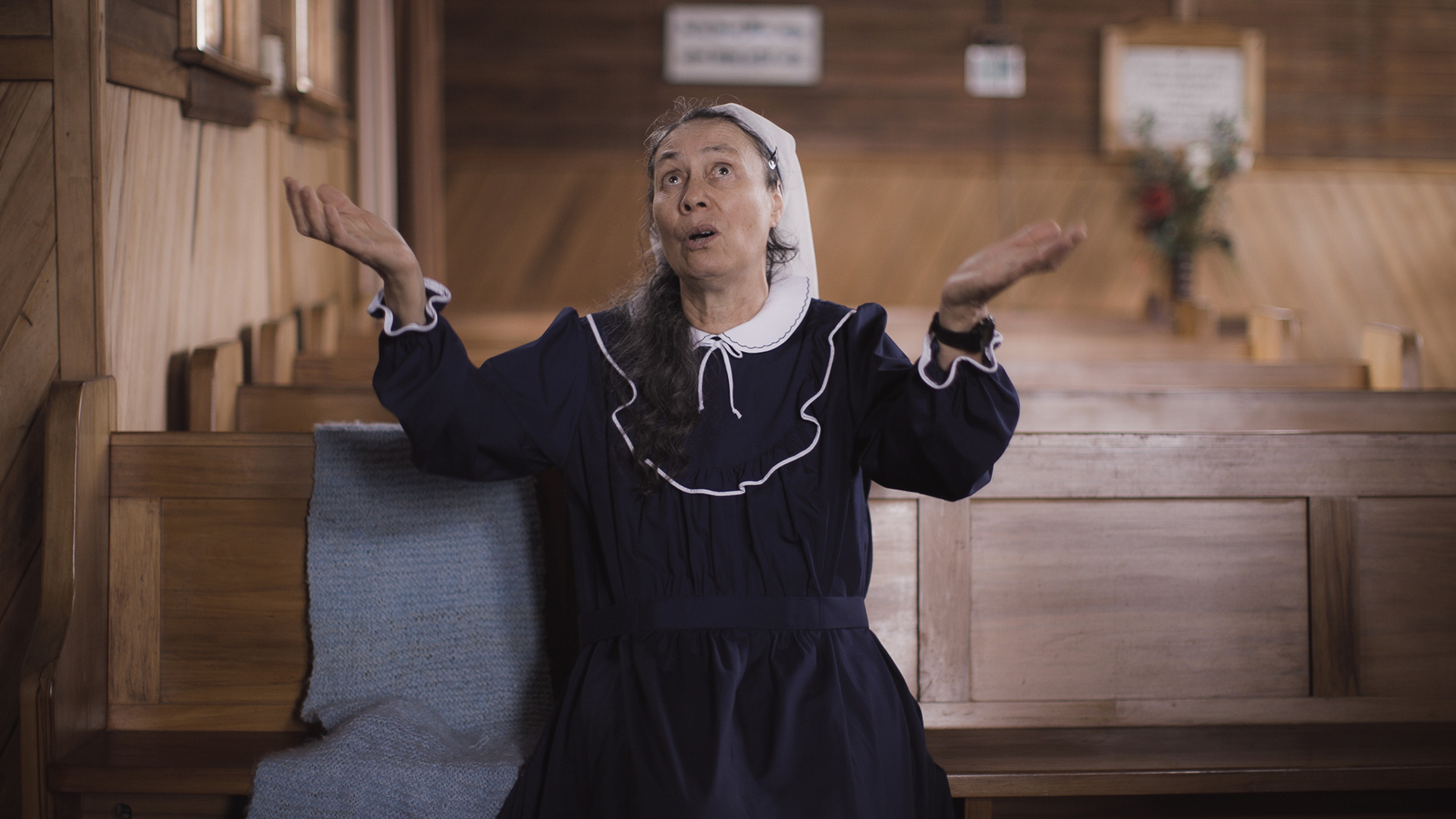Gloriavale filmmakers shed light on their eye-opening NZIFF doco

As part of our Q&A series for local features playing as part of Whānau Mārama: New Zealand International Film Festival, filmmakers Noel Smyth and Fergus Grady shed some light on their eye-opening documentary Gloriavale.
Describe your film in EXACTLY eight words.
One family’s fight to end abuse at Gloriavale.
When did you first begin to feel Glorivale was a problematic community?
We didn’t know much about Gloriavale before starting the project, but as soon as we started speaking to members (both past and present), we realised there is a much darker underbelly to what is portrayed.
Had you ever felt ‘that stuff doesn’t happen here in NZ’?
This is exactly what drew us to the project! When we heard about what was going on, we couldn’t believe it was happening in NZ. There’s definitely a sense that this stuff always happens elsewhere, but to know it’s happening right here in New Zealand was very shocking.
Do you see parallels with other religious groups or cults documented internationally in recent years?
Yes absolutely. There’s almost a blueprint to creating a cult at this point. A charismatic and narcissistic leader with warped morals, an isolated location that creates a fear of the outside world, a promise of salvation, the controlling of finances, psychological manipulation, sexual deviancy, and a self-policing population all go into the mix to create a cult.
What role do you see your documentary playing among the varied media coverage of Gloriavale?
There’s been so much about Gloriavale in the media, but I don’t think there’s ever been anything so in depth that also gives the audience characters they can empathise with. We want our film to continue the conversation that’s happening and help put pressure on policy makers to step in and force change.
What was it like to spend so much time in the company of people who were, or are, a part of Gloriavale?
It was an absolute pleasure to spend time with the current and ex-members in the film. These are just regular people that happen to have been born into a very controlling community. We feel very fortunate and are grateful to everyone that let us into their lives to document what’s going on.
During production, what was the biggest hurdle you had to overcome?
This has been an incredibly difficult project to bring to life. From navigating the challenges of telling a live legal story to making the film across countries and during multiple lockdowns.
However the most challenging thing was finding characters that were brave enough to speak out against the community. There were a few people we were following early on that were eager to speak out, but eventually decided the risk was too great for them and their families.
For you, what was the most memorable part of this whole experience?
There were a number of revelatory moments throughout making the film, but the standout moment for me was when Sharon Ready agreed to an interview. As an original member still living in the community, this was a huge moment which I didn’t think we would get. I’m so glad we did though because she’s an incredible woman with a heartbreakingly inspirational story.
What was the last great film you saw?
I’ve just had a baby so haven’t been watching many films lately! That said, the best documentary I’ve seen recently was The Truffle Hunters and the best narrative film I’ve seen lately was Pig. Ferg rates The Good Boss which is also in the festival which I want to check out.



















